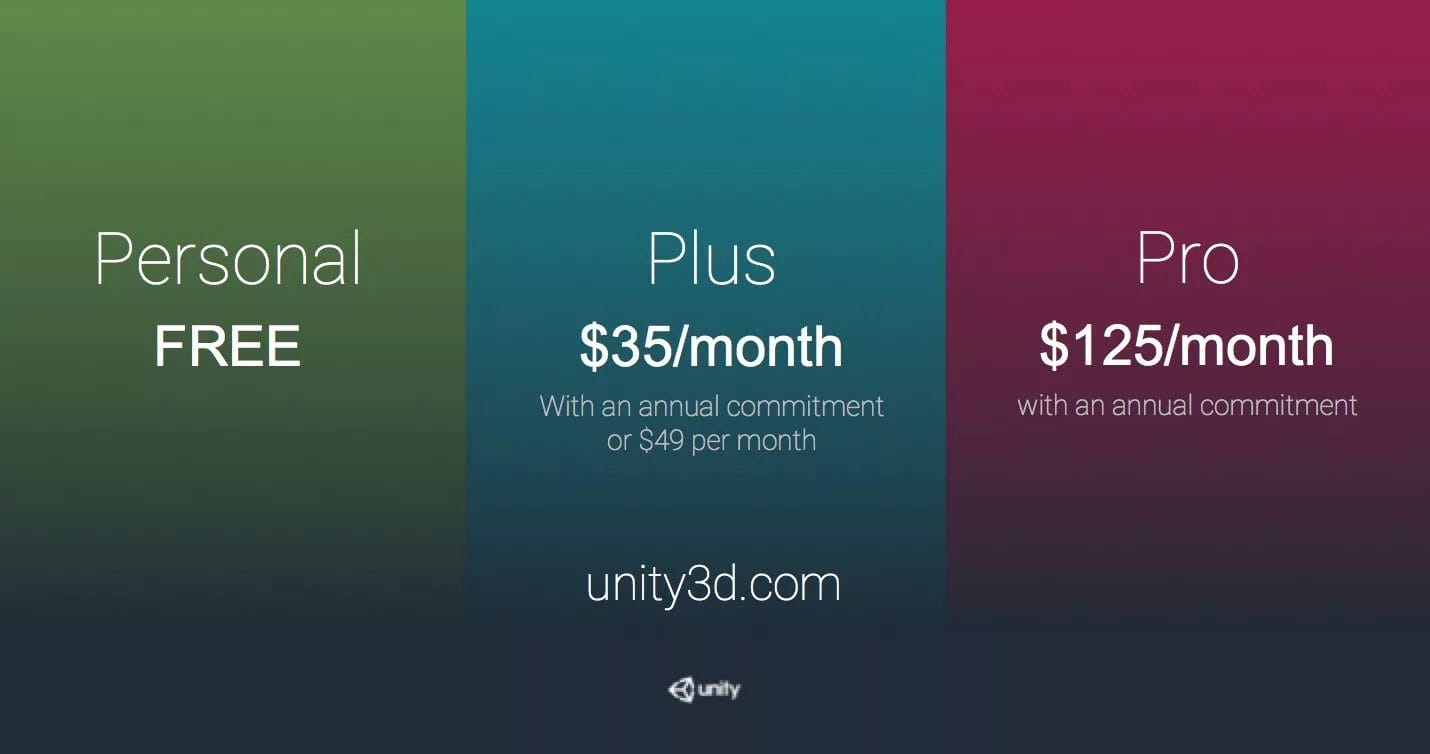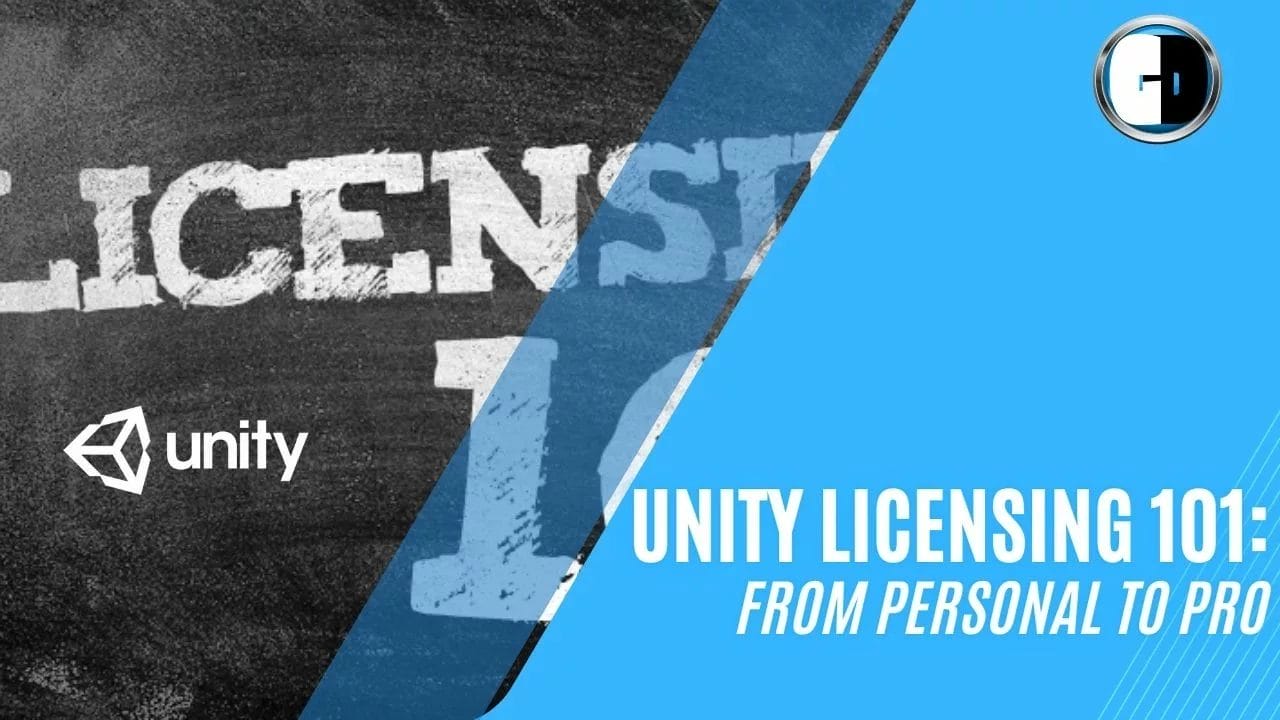Game development has become more accessible than ever before, thanks to the rise of powerful game engines like Unity. Unity is a popular game development tool that is used by both beginners and professionals alike. With its user-friendly interface and powerful features, Unity has become a go-to tool for developers looking to create games for a variety of platforms. However, navigating Unity’s licensing system can be intimidating for those new to game development.
In this article, we will provide a comprehensive guide to Unity’s licensing system, from the free Unity Personal to the paid Unity Plus and Unity Pro options. We will cover the features and financial eligibility requirements for each tier, as well as other important considerations when choosing the right license for your game development needs.
Whether you’re a beginner looking to get started with game development or a professional looking for advanced tools and features, this article will provide you with all the information you need to make an informed decision about Unity licensing.
Unity Licensing 101 Contents
Key Takeaways
- Unity offers three licensing options: Personal (free), Plus (costs $40 per month or $399 annually), and Pro (costs $2,040 per year).
- Revenue or funding determines which tier of license is required, with Personal having a limit of $100,000 and Plus having a limit of $200,000.
- Unity projects are tied to the tier of license they were created with, and upgrading to a higher tier may be necessary as revenue or player base increases.
- Unity Pro is required for building and deploying to closed platforms such as consoles, and offers additional features such as improved customer service support and increased cloud diagnostics.

Licensing Tiers
The licensing tiers for Unity are based on revenue or funding eligibility and determine the features and cost of the software. Unity Personal is the free option for commercial use, while Unity Plus and Unity Pro offer additional features at a cost.
Unity Personal has the same technology and technical capabilities as Unity’s paid products, but requires revenue or funding related to the use of Unity to be less than $100,000 for the most recent twelve-month period. On the other hand, Unity Plus requires earnings from Unity to be less than $200,000, while Unity Pro and Unity Enterprise have no earning limit.
Unity Personal is recommended for beginners and those who do not need additional features, while Unity Plus is suitable for those closer to the release of their game and in need of additional features. Unity Pro is required for building and deploying to closed platforms such as consoles. Additionally, Unity Pro removes revenue limits and offers improved customer service support. Unity Enterprise is a large-scale plan for larger developers.
The choice of licensing tier depends on the developer’s needs and revenue eligibility, with personal being the starting point for most developers and upgrading to Plus or Pro being necessary as the revenue or player base increases.

Features and Costs
Features and fees fluctuate from the free option to the paid alternatives. Unity Personal is a free option that provides the same technology and technical features as Unity’s paid products. Unity Plus and Unity Pro offer additional features at a cost. Unity Plus costs $40 per month or $399 annually and increases financial eligibility to $200,000. It offers splash screen customization and increased collaboration and diagnostics limits. Unity Pro, on the other hand, costs $2,040 per year and removes revenue limits while offering improved customer service support. It is required for building and deploying to closed platforms such as consoles.
To better understand the differences between Unity Personal, Unity Plus, and Unity Pro, here is a cost breakdown and feature comparison table:
| Unity Personal | Unity Plus | Unity Pro | |
|---|---|---|---|
| Cost | Free | $40/month | $2,040/year |
| Financial eligibility | <$100,000 | <$200,000 | None |
| Splash screen | Unity logo | Customizable | Customizable |
| Cloud diagnostics | 250MB | 4GB | 4GB |
| Collaboration | 3 people | 10 people | Unlimited |
| Customer service | Community | Email support | Phone support |
| Revenue limit | <$100,000 | <$200,000 | None |
| Closed platform access | Not available | Not available | Available |
As shown in the table, Unity Personal is recommended for beginners and those who do not need additional features. Unity Plus is recommended for those closer to the release of their game and needing additional features. Unity Pro is required for building and deploying to closed platforms such as consoles. Paid subscriptions tend to scale with success, so upgrading to Unity Plus is best when necessary due to increased revenue or player base.
Upgrading and Platform Support
Upgrading to a higher tier of Unity license subscription is necessary for developers who require access to closed platforms like consoles. While Unity Personal is a great starting point for beginners and small-scale projects, Unity Pro is required for building and deploying to consoles such as Xbox, PlayStation, and Nintendo.
Upgrading to Unity Pro not only unlocks the ability to publish on these platforms, but it also removes revenue limits and offers improved customer service support. The benefits of upgrading to Unity Plus or Unity Pro include increased financial eligibility, splash screen customization, and improved cloud diagnostics.
However, it’s important to note that upgrading also comes with additional costs. Sony and Nintendo provide Unity Pro licenses as part of their development programs, but Xbox may require purchasing Unity Pro separately. It’s important for developers to assess their needs and platform compatibility before upgrading to ensure they are getting the most out of their license subscription.
Frequently Asked Questions
Is there a difference in the level of technical support between Unity Personal, Unity Plus, and Unity Pro?
Like a rolling wave, the level of technical support differs among Unity’s licenses. Unity Personal users receive basic support, while Unity Plus and Unity Pro users have access to more extensive support. A cost analysis of Unity’s licensing options can help determine the best fit for developers seeking technical support.
Can Unity Personal be used for educational purposes?
Unity Personal benefits educational applications through its free licensing for commercial use, allowing students and educators to learn and develop games without financial burden. Additionally, community resources for Unity Personal users provide support and learning opportunities.
Are there any restrictions on the type of games that can be created with Unity Personal?
Unity Personal has no restrictions on the type of game genres allowed, but it has limitations on revenue and funding. It is a free game development tool for commercial use and offers the same technical features as Unity’s paid products.
Does Unity offer any discounts for non-profit organizations?
Unity offers non-profit discounts for eligible organizations. Eligibility criteria include being a registered non-profit with a valid tax ID, having a mission aligned with Unity’s values, and using Unity for non-commercial purposes.
Can Unity projects be transferred between different licensing tiers?
Unity licensing transferability has limitations and considerations. Projects created with a specific license tier are tied to that tier, making a transfer impossible. The impact of licensing changes on project development and collaboration should be carefully evaluated.
Conclusion
In conclusion, Unity Technologies has made significant changes to its licensing policies, introducing more flexibility for developers and studios of all sizes. The new licensing options, including the Unity Pro and Plus plans, provide advanced features and tools, which can help developers improve their workflows and save time and resources.
However, these changes have also sparked controversy among some members of the Unity community, who are concerned about the potential negative impact on small developers and indie studios.
To find out more about the Unity licensing changes and to join the discussion, we invite you to read our blog, where we provide regular updates and insights on the latest developments in the gaming industry.
We also welcome your comments and feedback, as we strive to create a more collaborative and inclusive community that supports the growth and success of all developers. Thank you for reading and stay tuned for more exciting news and articles from the world of gaming and technology.
A game developer that wants to share its knowledge and experience with other game developers-





